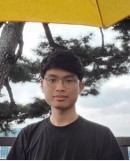
Office
Tel
REspected journals and magazines
Other Publications in respected journals and Magazines
TOP AI conferences
Respected International conferences
peer reviewed Domestic journals
peer reviewed Domestic CONFERENCE
1. Deep Learning for Autonomous Vehicles
2. Vehicle Localization and Navigation
1. Meta-Reinforcement Learning-based End-To-End Self-Driving with Rapid Adaptation to Unexpected Novel Situation (2021-2025)
A self-driving car may run into a trouble when there occurs an UNS (unexpected novel situation) that includes a wheel slip due to partially ice roads, control problems due to the unexpected dynamics change such as flat tire and partial brake misfunction. The project is to develop an innovative AI for self-driving cars that quickly figure out the situation and adapts control appropriately in seconds, which is necessary for driving safety.
2. Deep Learning for Perception with 4D Radar (2021-2022)
4D (xyz and Doppler) Radar is a new Radar developed for autonmotives in 2020. We are developing perception (deep learning) for 4D Radar for the first time in the world. And we already made world first progress such as developing and distributing 4D Radar dataset and publishing the first study on 4D Radar deep learning algorithms.
3. Development of AI technology that continuously improves itself as the situation changes in the real world (2020-2023)
We are participating this group project, where we are developing AI for self-driving cars that improves its driving policy quickly when the cars meet real environments that are different from its prior experience.
1. Self-Driving Car Competition (2018) in Korea 2018
My research team won the President Prize (of Korea) in the biennial 2018 International Student Self-Driving Car Competition, which is sponsored by the Korean government and Hyundai Motors Group. There are many technologies that we have developed for the self-driving car; two of the pioneering technologies are the Lidar sensing system and path planning algorithm.
2. Deep Learning-based LPI Radar Recognition Technique 2016-2018
Low probability of intercept (LPI) radar is one of the state-of-the-art military radars in the electronic warfare, where the continuous waveform is specially modulated and transmitted with low power so that the opponents cannot easily detect the presence of the signal. LPI radar detection is a hot-topic in radar research these days, but my research on this topic has produced by far the best performing techniques for LPI radar detection, classification, and feature extraction using state-of-the-art deep neural networks. Because of that, I was invited to deliver a talk at the LPI radar special section of the IEEE radar conference-2019.
3. Mobile Positioning System for Korean LTE Carriers 2015-2018
LTE carriers are providing mobile positioning service using Assisted-GNSS, Wifi, and cellular localization. I have been the technology leader in the development of Assisted-GNSS robust to urban environments and the localization system using cellular signals for the two major Korean LTE carriers, SKT and KT. The system for SKT has started its service around Seoul, Korea, and the system for KT will be on service in 2020.
4. High-Sensitivity and Fast Acquisition for Severely Attenuated GNSS Signals 2013-2017
This research is to develop super-sensitivity and ultra-fast GNSS signal detection technique to quickly define user location with weak GNSS signals in the indoor environments. I have developed a breakthrough GPS signal acquisition technique (Synthesized Doppler-frequency Hypothesis Testing: SDHT) that requires tens of thousand times less computational cost and, thus, takes tens of thousands less time to perform a very long coherent correlation necessary for indoor GNSS positioning. SDHT is introduced in IEEE JSAC in 2015 and IEEE Signal Processing Magazine in 2017.
5. Multisensor Fusion based Precise Navigation Syst. for Korean Express Trains (KTX) 2013-2016
Developing an accurate and seamless navigation system for express trains running faster than 300Km per hour is a big challenge. My team had successfully developed a federated Kalman filter based navigation system to combine various sensors such as DGPS, INS, RFID, and wheel-encoder, which produces precise positioning estimate (less than 2m instantaneous error at 300Km/hr speed) at any time any environments including tunnels. The performance of the developed system was demonstrated through field tests on mountainous train tracks, where we had tunnels of several kilometers long.
6. Multipath Error Modeling and Mitigation Techniques for LTE and GNSS 2010-2014
Due to the nonlinear distortion by the receiver signal processing chain, noise, and interference between multipath, the resolved-and-detected first arrival path (RFAP) is very often different from the true first arrival path in the channel. Also, the spatiotemporal distribution of multipath in the given environments is hard to predict, and there hasn’t been a reliable multipath mitigation technology. These problems have been unexplained, but I have done pioneering research on these topics to explain the spatiotemporal distribution of urban multipath for GNSS and LTE and the nonlinear distortion making RFAP different from the first arrival path. I also developed so-far the best RFAP detection techniques using least-square and deep learning.
7. Repeater Signal Identification System for Positioning in Underground Areas 2002-2004
In practice, the presence of repeaters or remote radio head ruins mobile positioning systems using temporal delay or angular measurements of the signals, because their signals are the same signals transmitted at the base station. In 2003, I invented and developed the world’s first (and best so far) repeater positioning technology that enabled the largest Korean CDMA carrier, SKT, to expand their location-based services (LBS) to the underground stations and malls for the first time in the world. I sold the entire license, and later the technology made SKT become the national location tracking service provider of electronic wedges.
GRADUATE COURSES (IN ENGLISH, KAIST)
UNDERGRADUATE COURSES (IN ENGLISH, KAIST)

조상재

최영수

백동희

Kevin Tirta Wijaya

Tri Wahyu Guntara

김동인

선민혁

김정훈

Ryan Gallagher